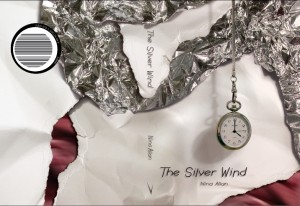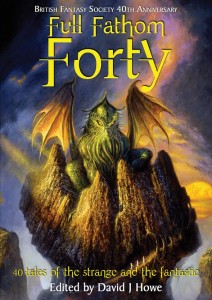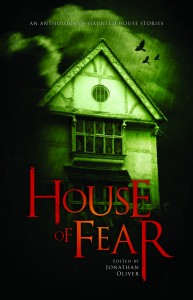FrightFest is a force I feel powerless to resist. At some point during the long weekend of the August bank holiday I will inevitably be seen marching towards the Empire Leicester Square like an eloi obeying the summons siren of the morlocks. What is worse, now that I’m writing a monthly column for Starburst magazine I have a professional excuse to go. Fatal. For those of you who enjoy the sound of spleen being vented you’ll have to wait until the October issue of Something Rotten in the State of Denmark, where I’ll be airing my thoughts on the films I saw and the state of horror cinema generally.
Whatever the issues surrounding that, it felt wonderful to be waking up in Bloomsbury, and walking through Russell Square in the early morning I felt intoxicated by the smell of London rain, that insistent clarity after it, not just of the air itself but of one’s own visions.
The light in London after rain is the colour of chalcedony. As I left the city, trundling out of Charing Cross and on through Southwark, St John’s, Hither Green (my own beloved south eastern corner of the metropolis I saw deliciously described the other day as resembling an old dressing gown) I watched the skies darken as the train nosed gently into Sussex, the Downs with cobalt clouds heaped up behind them like darker and more distant hills, thinking why can’t someone make a film about that?
In the main, I shall remember this week not so much for the film festival as for reading Daniel Kehlmann in Bloomsbury Square.
I originally bought Kehlmann’s novel Fame for Chris, after reading a review of it here and having a persistent interest in German writers. I was right in thinking it would be his kind of thing. Now that I’ve finally caught up with it myself, I have to agree wholeheartedly that Fame is a special book by a special writer.
There’s an almost Bowlesian moment at the end of Chapter 5 of Fame when the crime writer Maria Rubinstein experiences an epiphanic realisation of the precariousness of personal identity:
For a moment she thought about her husband. Suddenly he seemed a stranger, like someone whom she’d known long ago, in another world or a past life…. With astonishing clarity she knew that such moments were rare and she must be very careful. One false move and there would be no way back, her former life would be gone, never to return.
Abroad on a book tour as a subsitute for a more famous writer, Maria has come adrift from her existence as she previously knew it. By a series of unforseen incidents and bureaucratic accidents (all too believable to anyone with any experience of travelling in the Eastern bloc before 1989) she is separated from her group, can find no one who understands her language and – worst of all – she has forgotten her phone charger. She has no way of making contact with the outside world, and so she is forced to consider how she might rebuild herself from scratch. The humour and terror of Maria’s situation is the essence of Fame, which at just 170 pages is not a long novel but is a masterpiece nonetheless. Like a cordon bleu soufflé, the lightness and delicacy of its achievement belies the dexterity, experience and artistic maturity needed to produce such an article. And Kehlmann’s flavours are refined and sublime throughout.
I should emphasise that Fame is also glorious fun to read. This is a book in which philosophy, novelistic gamesmanship and social comment keep outbidding each other like insane poker players – and yet is also so compelling as story that I simply could not leave it alone. Works that are tagged as masterpieces risk getting dragged down by the weight of their own ponderousness; Fame is effortlessly playful, a joyous and direct act of literary communication. This is a novel in which the writer colludes with the reader instead of lecturing him, letting him in on the joke as opposed to making him feel stupid.
The structure of the novel – in the original German it is subtitled A Novel in Nine Chapters – means that in narrative terms there is no 19th century continuum. Characters appear for a while, then disappear entirely for fifty pages, only to return as someone’s brother, or on a cinema poster, or as a missing persons report. None of this is remotely confusing. As a reader you race ahead, eager to discover what the hell happened to him? Sometimes Kehlmann will tell you, and sometimes he won’t. You won’t mind though, because the book’s internal logic is overriding, even when the novel has no ending in the conventional (and therefore restrictive) sense of the word.
I want to add that Fame is a novel of beauty, pathos and great compassion. For all the absurdity of their situations (of the very societal cul de sac in which we find ourselves living) Kehlmann treats all his characters with sympathy and grace. With the exception of Miguel Auristos Blanco, the uniquely self-satisfied author of a dozen or more manuals of cod Eastern wisdom and who, for reasons unknown to me, I kept imagining as a phyiscal double of Andre Rieu, these are people we feel we know and would probably like. Blanco can’t even blow his own brains out properly. but the eponymous heroine of the chapter ‘Rosalie Goes off to Die’ has a more combative approach to death. Not satisfied with the story she has been given, she takes the whole thing up with the author – and gets away with it!
For like Rosalie I cannot imagine that I am a nothing if I am not being observed by somebody else, and that my only half-real existence ends the moment that somebody takes his eyes off me – just as, now that I’m finally ending this story, Rosalie ceases to exist. From one moment to the next. Without any death throes, pain or transition. At one moment an oddly dressed girl in a state of happy confusion, now a mere undulation in the air, a sound that echoes for a few seconds, a memory that bleaches itself from my mind and yours as you read this paragraph.
What remains, if anything, is a street in the rain. Water pouring off two children’s ponchos, a dog over there lifting its leg, a yawning street sweeper, and three cars with unknown number plates rounding the corner as if they were coming from a long way away: out of another unknown reality or at least out of another story altogether.
Glorious writing. This is what the modern novel should be about.
(Quotations taken from Fame by Daniel Kehlmann, translated by Carol Brown Janeway, Quercus 2010 9781849163767.)





